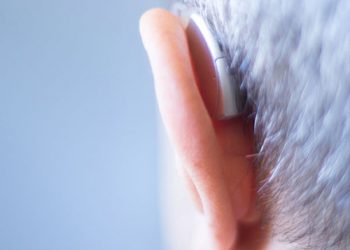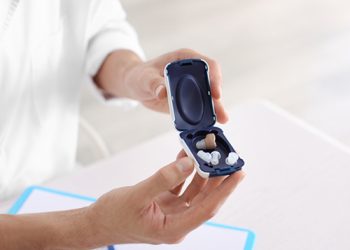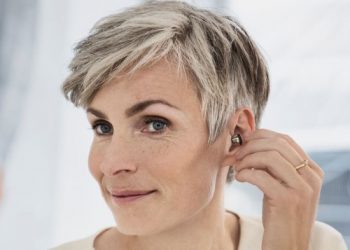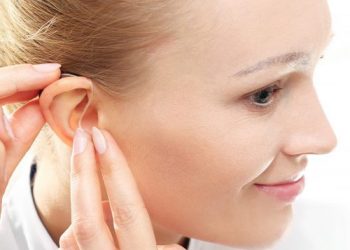At your free hearing check, a qualified audiologist will take into account your level of hearing loss, aesthetic preferences, lifestyle needs and budget before providing you with the best options for your individual specifications.
Device Types
At auditorey.com we are here to help you choose the best hearing aid for your needs.
Which style and type of hearing aid is right for you?
Frequently Asked Questions
On average, hearing aids have an estimated lifespan of between 3 – 5 years. Depending on the style and if your hearing loss remains stable, some may last longer.
In-the-Ear (ITE) hearing aids have an estimated lifespan of between 4 – 5 years, while Behind-the-Ear (BTE) hearing aids have an estimated lifespan of between 5 – 6 years. This is due to the construction of the hearing aid, and the way that they are worn.
At the same time, the lifespan of a hearing aids is also dependent on how they fit into your life. If your hearing has changed, the performance of the hearing aid may not have the power to accommodate your changing hearing abilities.
Digital Hearing aids offer far better sound quality and clarity and have largely taken the place of analogue ones. They have a tiny computer inside which processes sound and this makes it possible to customise them precisely to suit each individuals hearing loss needs.
Digital hearing aids can amplify or eliminate frequencies and noise patterns and even shift sounds to more comfortable ranges.
This means they can be programmed with different settings for different sound environments; for example, one program for a quiet living room and another for a noisy restaurant.
Tinnitus is a physical condition, experienced as noises or ringing in the ears or head when no such external physical noise is present. Tinnitus is usually caused by a fault in the hearing system; it is a non-specific symptom that can be brought on by a mental or physical ‘change’, not necessarily related to hearing in the ear or the auditory pathway.
Tinnitus is often described as ringing in the ears, buzzing or humming noises but it can be experienced differently from person to person. It can be very difficult to concentrate and can keep you from sleeping well at night leaving you exhausted during the day.
Hearing problems rarely cause discomfort or pain, and because the hearing loss process is gradual, it’s common to adapt to someone’s hearing loss without realising it. Here are the top warning signs of hearing loss:
- People seem to mumble all the time
- You hear, but have trouble understanding
- You often ask people to repeat themselves
- Telephone conversations are difficult
- You can’t hear household sounds, like a faucet dripping or a clock ticking
- It’s hard to hear without seeing the speaker’s face
- You are told you speak too loudly
- People say your television or radio volume is set too high
- You have ringing or buzzing in your ears
- Conversations are difficult in a large group
- You have trouble following conversations with more than two people
- You struggle to hear in crowded places, like restaurants and malls
- You have a hard time hearing women or children
Hearing aids can improve your quality of life by boosting your self-confidence, reducing your stress level and reconnect you to your loved ones. It’s hard to be confident, relaxed and connected when you are unable to be part of what is going on around you.
After using a hearing aid, 39% of the users report having improved their ability to communicate effectively, 32% stated their improvement in their social life today and 35% feels more confident about themselves.
They can also improve:
- Personal relationships; after all, successful relationships depend on successful communication.
- Job performance; eliminating the need to constantly ask “What?” or “Can you repeat that?” and keep you on top of your game.
- Safety; you don’t want to miss hearing a smoke alarm, a window breaking, a dog barking at a stranger, an oncoming car when you’re walking, or a siren when you’re driving.
One in six people experiences hearing loss, between the age of 45-74 one in five experience hearing loss. However, hearing loss is prevalent at all ages.
Those who work in loud environments are prone to noise-induced hearing loss. Sounds of less than 75 decibels, even after long exposure, are unlikely to cause hearing loss. However, long or repeated exposure to sounds at or above 85 decibels can cause hearing loss. The louder the sound, the shorter the amount of time it takes for noise-induced hearing loss to happen.
The brain is an important part of our hearing and needs to interpret signals to “make meaning of the sound”, therefore it is important the brain is fed with signals to keep in good shape.









